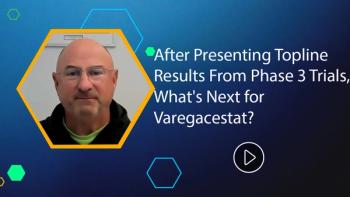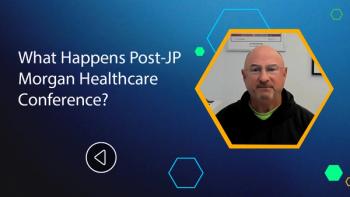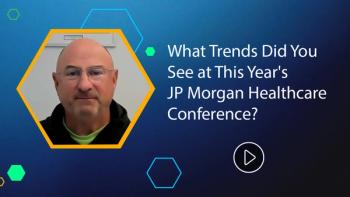
Addressing Unmet Needs in Schizophrenia, Pulmonary Arterial Hypertension & NASH
In this Pharmaceutical Executive video interview, Optum Rx clinical pharmacist, Arash Sadeghi, discusses the three drugs featured in their Drug Pipeline Insights Report for 2024 and which unmet needs they address.
The report highlights three drugs with potential for breakthrough innovation in their respective fields. What specific unmet medical needs do each of these drugs address, and how do their unique mechanisms of action aim to fill gaps existing treatments have left behind?
We can start with, Sotatercept. So, this is potentially a first in class treatment for pulmonary arterial hypertension, or PH. So, PH is a rare chronic disease affects about 40,000 people in the US, the disease is characterized by high blood pressure in the arteries, the lungs, and then that high blood pressure in the lungs can cause the heart to basically be overworked, which can eventually lead to heart complications and heart failure. There are existing drugs approved to treat PH. But those treatments while they can improve function, and they've been shown to improve survival, they're not cures for the condition. And even with those treatments, average survival is about five to seven years after diagnosis. So, there is a very high unmet need for additional treatments for these patients. And there hasn't really been anything innovative in quite some time for PH. So basically, it's kind of very short summary of the way the drug works and PH, you essentially have abnormal growth of cells in the arteries of the lung. And that basically causes your arteries to become more narrow and constricted, which is the reason why you get that high blood pressure. So, the way Sotatercept works, and it has a very complex mechanism. But in simple terms, it basically works by reducing that cellular growth. And then as a result, the downstream effect is that it can have a positive impact on the heart by reducing the pressure in the lungs. So that's Sotatercept.
Resmetirom is another potentially first in class treatment. This one is specifically for non-alcoholic steatohepatitis, or NASH, very different condition. This is a very common liver disease. And it's characterized by excessive fat buildup in the liver. So unlike PH where it's an orphan condition, NASH is actually very common, affects about 6.5% of the overall population in the US. So, you're talking about millions of patients, but only a small subset actually know they have the disease or have actually been diagnosed. And a big reason for that is the condition is essentially asymptomatic for most people. And it's a very slowly progressing disease.
But ultimately long term, it can actually lead to liver failure and liver cancer. There are no approved treatments for NASH. So, this is another place where there is a very high unmet need because we just don't have just no other treatments for it. The way Resmetirom works again, novel mechanism of action, it works by activating a specific receptor found in your liver, a specific thyroid hormone receptor, and activating the receptors in your liver is believed to provide a variety of metabolic benefits, including reductions in excess liver fat, which is again the cause of the disease. So that's how that drug works.
The last drug Roluperidone, I don't want to spend a whole lot of time on this one because it did get a rejection from the FDA. And I don't envision that this is going to be on the market anytime soon. But the reason we had this highlighted was because it was potentially going to be the first drug approved for negative symptoms associated with schizophrenia. So, schizophrenia is generally divided into two different subsets of symptoms, you have positive and negative symptoms. The positive symptoms are the ones you kind of associate with schizophrenia there’s things like hallucinations, delusions, paranoia, basically, the presence of symptoms that are not supposed to be there. The negative symptoms involve the absence of normal processes or emotions. So basically, the inability or decreasing the ability to initiate plans to express emotion or find pleasure. Those are the negative symptoms, the drugs that are currently available for schizophrenia, they actually can be when they were very effective for the positive symptoms, but they're less effective for the negative symptoms associated with the condition.
So again, there's this unmet need in specifically treating those negative symptoms of the condition. Most of the drugs for schizophrenia, basically work on dopamine receptors, roluperidone actually didn't, it doesn't block dopamine directly. So, it had a very unique kind of mechanism of action. Again, it would have been potentially the first drug for negative symptoms, but as I alluded to it, it did end up getting rejected by the FDA and it Sounds like the FDA is going to require an additional study. So, I don't envision that this is going to end up on the market within the next year or two.
Newsletter
Lead with insight with the Pharmaceutical Executive newsletter, featuring strategic analysis, leadership trends, and market intelligence for biopharma decision-makers.




